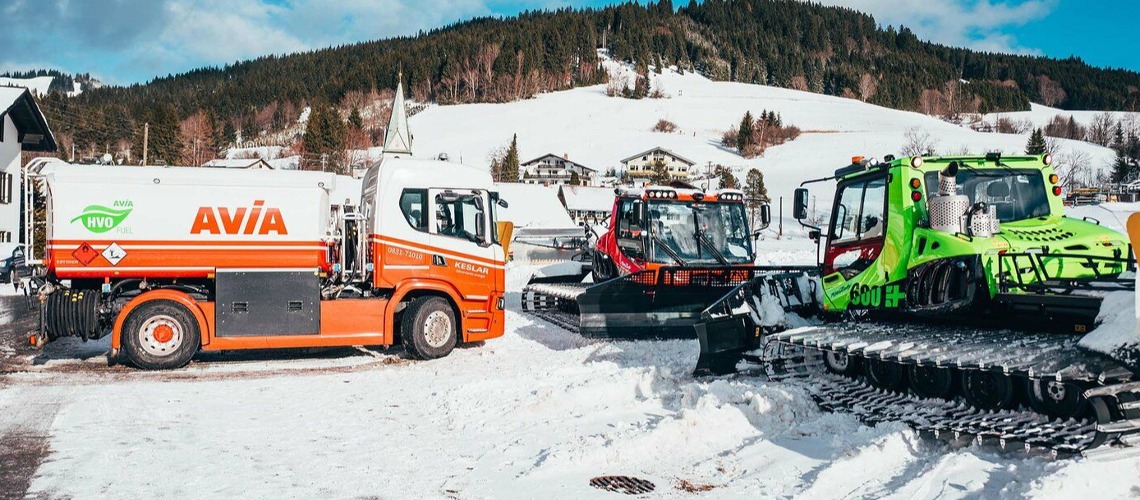Jungholz Testing HVO Fuel, Co2 Footprint With Pistenbully About 90% Lower

Kässbohrer is approaching another milestone in terms of sustainability: The use of clean HVO fuel supports the ski areas in their efforts to achieve greater climate neutrality. All PistenBully built in 2022 or later set off on the slopes of the world with pure HVO fuel. This is based on hydrogenated vegetable and animal fat waste and reduces CO₂ emissions by around 90% for every hour of operation compared to conventional diesel.
- 90% less CO₂ emissions compared to conventional diesel
- Vegetable and animal fat waste form the basis of the fuel
- Cold resistance of at least -22°C
In the Tyrolean ski area of Jungholz, the entire PistenBully fleet will be exclusively fueled by HVO this season. The season test is intended to demonstrate the efficiency of the clean fuel in the real-life application of slope grooming.
"Even a small ski area can make a great contribution to environmental protection," says Arnold Holl, Managing Director of Skiliftgesellschaft Jungholz. For this reason, all PistenBully vehicles will be exclusively fueled with the renewable HVO fuel throughout this winter season, and the fuel's performance will be tested.
According to Andreas Hausmann, who is a member of the executive management at KESLAR GmbH, the company supplying the fuel, use in slope operation suits HVO particularly well: "This fuel is based on hydrogenated plant and animal fat waste and is 90% CO₂ neutral over its entire production chain." This means that for each operating hour, about 90% less CO₂ is emitted compared to conventional diesel fuel.
HVO is synthetically produced by the so-called hydrogenation of waste fat from the food industry, fisheries and slaughterhouses and vegetable oils (which are not intended for the food industry). The result is a high-quality fuel made from renewable raw materials whose chemical structure is identical to that of fossil diesel and can therefore completely replace it. The fossil-free HVO fuel protects the environment with around 90% less CO₂ emissions. Other advantages: non-toxic, biodegradable, low-odour - with better combustion and filterability. Particularly important when used in snow: HVO has better low-temperature properties down to -10° C than conventional winter diesel fuel. Incidentally, the HVO fuel used by Kässbohrer does not contain any palm oil at all.
At the end of the season, an analysis will be conducted to determine how successfully the alternative fuel with its higher power density has performed.














